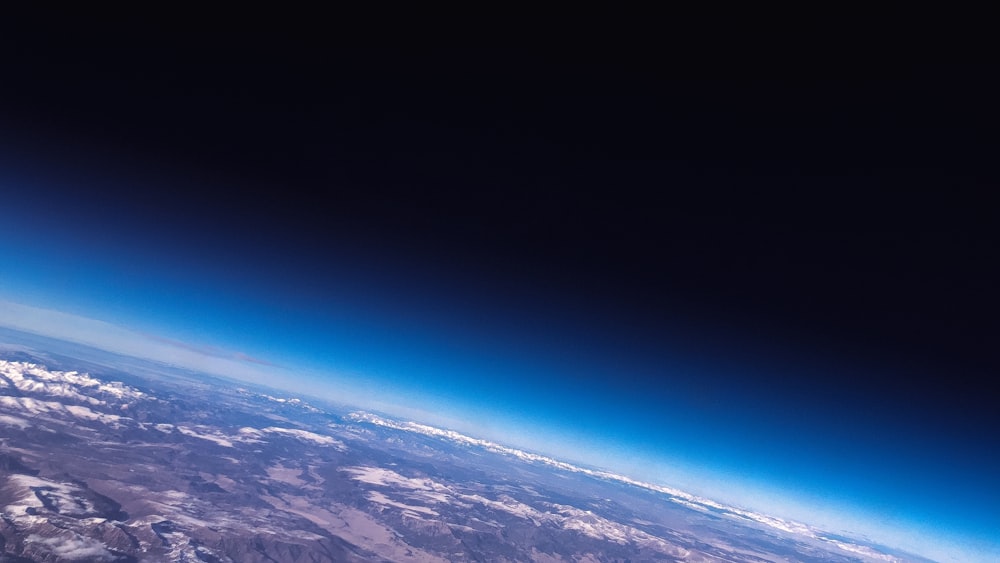Everything has its pros and cons…..even a deadly disease like COVID-19
Approximately there have been over 351,000 global deaths due to the coronavirus. The economy has drastically decreased and ultimately things are currently looking rather bleak. There’s no doubt that COVID-19 has negatively affected people as the economy has suffered. For example, global supply chains have become overstretched and interdependent on China. However, the impact of coronavirus, as hard as it is to believe, has contributed some good to the earth.
Despite the major economic consequences, there have been positive implications for the environment, such as the healing of the ozone layer. The ozone layer is what shields the earth from harmful radiation from the sun. Carbon dioxide (C02) and methane are harmful to the ozone layer and over time have destroyed it. But due to coronavirus forcing people to stay inside (well majority of the people), it has resulted in levels of carbon dioxide actually decreasing.

In fact, people from Punjab are amazed by the sight of the Himalayan Mountain which is now visible from more than 100 miles. They haven’t seen the peak of the mountain for decades due to the CO2 levels in the atmosphere. Indeed, human activity has been one of the major causes of the increasing levels of Nitrogen and CO2 levels in the atmosphere. But since coronavirus has restricted human activity, we’ve learnt to take a step back and realise the extent that human activity has damaged the climate.
We live in such a fast paced life, rushing to work, being on the constant grind, that we often forget the beauty we are destroying right in front of us; the environment. But with lockdown in place, things just stood still for once. It was as if for a moment we awoke from the deepest coma which we have been stuck in for years. We finally realised not only the beauty but the necessity of the environment.
Due to lockdown, the reduction of transport has decreased carbon emissions drastically and this is shown through the fact that pollution in New York has decreased by nearly 50% and in China emissions have fallen to 25%. Transport makes up to 23% of global carbon emissions and driving contributes to 72% to greenhouse gas emissions respectively, polluting the air with toxic gases. Moreover, with a 70% drop of global flights the air quality has gone from a hazy brown to a rare blue. Therefore, coronavirus can be argued to have a positive impact as the environment is not being harmed.

So what’s nature like without humans? Well, the clarity of the sky is astonishing, painted a bright, vibrant blue. Also, with very little pollution, the animals have been spotted around the globe, taking up space that was once occupied by humans. I guess it’s safe to say that although humans may not be enjoying this lockdown as much, our feathered friends are!
The frequency of bird noises changed from a low frequency to a higher one during the silence of human activity outside, showing that the birds felt comfortable to sing as loud as they wanted too. In Thailand, monkeys were fighting over a cup of yoghurt on the streets where cars would usually be and Egyptian geese were spotted crossing the tarmac of the Tel Aviv airport in Israel. Elephants in India were also seen occupying a busy road that would normally be dominated by vehicles and people. Animals are now reclaiming their space after being deterred by humans for so long.

We can now become the decarbonised, sustainable economy that many have been advocating for decades and it’s incredible how simple it is to achieve this. For example, by reducing our consumption using ozone-depleting substances, we can reduce our carbon footprint. Additionally, Aerosols, like hairspray, contain chlorofluorocarbons which can destroy the ozone layer and create dangerous environmental effects which result in the increase of ultraviolet rays. This can also cause skin cancer and weaken our immune system. If manufacturing companies reduce plastic packaging, we can reduce the emissions of chlorofluorocarbons from depleting the ozone layer.
One person at a time, we can make a collective difference and protect the planet. It just took a global pandemic to make us realise it.
- What we’ve all been waiting for – The vaccine for Covid-19 - 26th November 2020
- Upcoming artist explains his challenges with identity in the music industry | Meet the incredible Darshaan! - 18th October 2020
- Is your mental health worrying you? – Men’s mental health is just as serious - 2nd August 2020


